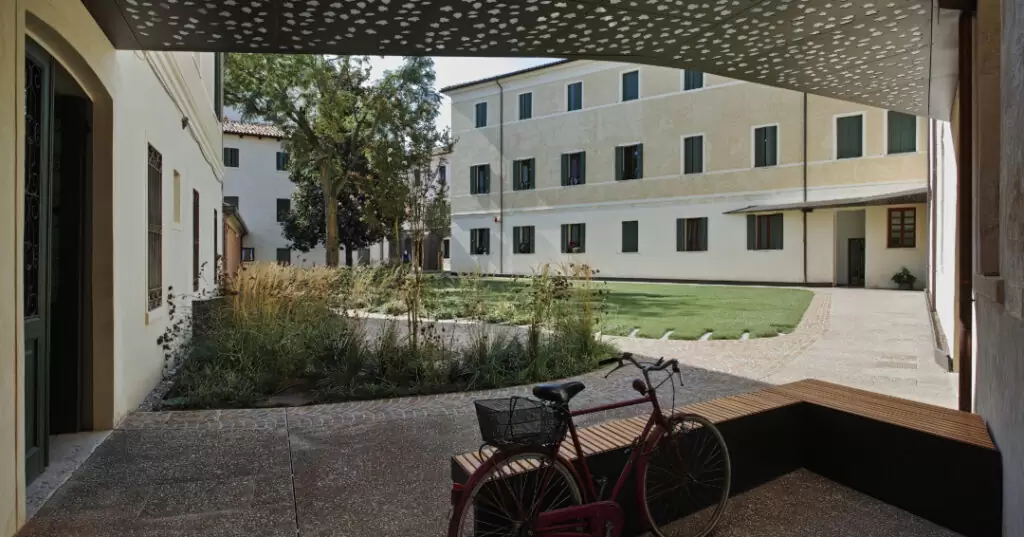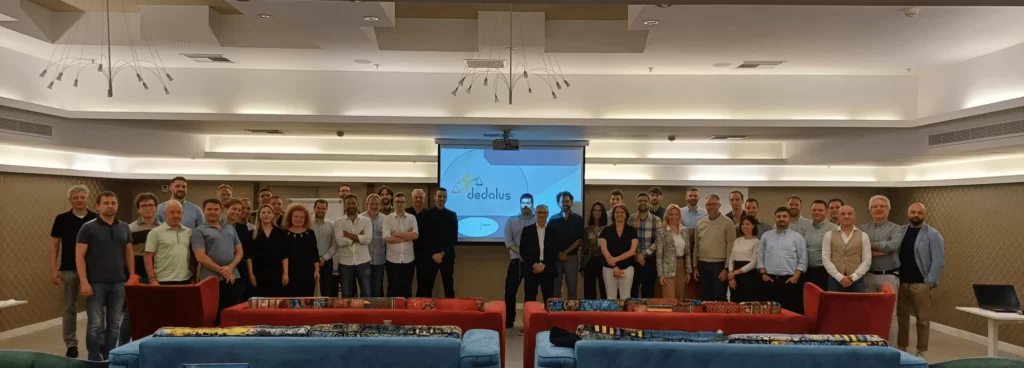Dedalus Pilots’ Chronicles | Engaging the elderly in demand response: first insights from our italian pilot

What if we can save energy and be rewarded by planting trees (also virtually)?
What if we can have a dashboard in the common areas of the building where we can see the overall energy consumption performance?
These were some of the suggestions by elderly residents at the co-creation workshop for the DEDALUS project. Held on last spring by Italian project partner ISRAA, the workshop encouraged elder residents to discuss all the things that could influence their behaviour and choices about demand-response programmes.
Nine residents, assisted by the ISRAA team, gathered in Opificio, one of the common spaces of Borgo Mazzini Smart Co-housing (BMSC). The group was mainly composed of women as they are the prevalent group living in the co-housing.
The workshop was divided into two sessions: the first focused on the analysis of the drivers and barriers residents perceive when thinking about demand response and, more in general, about energy conservation practices. The latter reflected upon the incentives that can influence people’s behaviours for DR participation, to attempt a selection of those considered more appealing.
Although the topic of energy can be perceived as difficult by elderly people, they did participate well and shared many valuable insights came up.
Among drivers for participation in DR programmes, comfort perception, a sense of belonging to a virtuous community in energy consumption, and increased awareness and education on the topic were identified as the most important to them. In contrast, the most common perceived barriers related to technology and a lack of education on the topic.
Similarly, the ranking activity on incentives highlighted an important fact: generally, elderly people like those living in ISRAA’s co-housing, with a similar social and economic background, are more receptive to incentives that involve a strong degree of community engagement; the incentive is more valuable and efficient if obtained as a group, with personal gain or recognition being less impactful than community achievements. Furthermore, environmental impact is also extremely important to them, demonstrating the strong environmental awareness of the older generations.
Now it is time to find the best incentive strategies to promote residents’ participation to Dedalus project and DR programmes!
Photo Credits: AdrianoMarangon©MADEassociati
(This news release has been written in collaboration with the DEDALUS partner ISSRA, as a co-author)
Dedalus Discoveries | Unlocking blockchain tokens: key valuation factors and new applications

The Technical Department of Science of the Technical University of Cluj-Napoca, as a partner of the DEDALUS project, has released the paper “ Review of Blockchain Tokens Creation and Valuation” in the field of the project.
This study addresses the challenges in the valuation and application of blockchain tokens by reviewing existing literature to identify the main factors influencing their value, investment potential, and use. While blockchain tokens offer benefits like easier market access, increased liquidity, and automated processes, their valuation remains difficult due to a lack of intrinsic value, high volatility, and regulatory uncertainty. Using the PRISMA methodology and the Web of Science database, the study explores the technical aspects of token development, including their creation, issuance and management on the Ethereum blockchain using smart contracts. It identifies key factors impacting tokenomics, such as demand and supply, market conditions, macroeconomic trends, and social incentives, and it highlights promising use cases in areas like asset digitisation, supply chain management, and governance.
Aligned with these insights, the DEDALUS project aims to create an innovative platform powered by blockchain and AI technologies, potentially transforming how buildings participate in demand-response programmes. By utilizing blockchain tokens, new strategies for citizen engagement and flexible compensation can be developed, going beyond traditional financial incentives to include values like sustainability and local economic support. This approach could redefine the value proposition of demand response, aligning it with broader societal and environmental goals.
The full paper is available at this link on the Resources section of the project website.
The Dedalus project: harnessing demand response for Europe’s energy transition

A new EU-funded project – DEDALUS – aims to develop and demonstrate an optimised demand-response ecosystem for residential buildings. Launched in June 2023, the project has 23 partners from 9 countries and will last for three years.
In the European Union, households represent 27.4% of the final energy consumption. The residential loads often contribute significantly to seasonal and daily peak demand. To support this variation, and to avoid interruption to the power supply, utility companies need to increase their energy generation.
Within this context, flexible consumption can play a pivotal role in the residential sector as it offers enormous energy demand flexibility, mainly thanks to the immense thermal energy storage and power management capabilities of the buildings. However, matching electricity supply and demand at all times is becoming increasingly challenging, which highlights the need for greater flexibility in the electricity system.
Residential demand response can reduce the need for fossil fuel power plants and facilitate the integration of renewable energy into the electricity grid by providing greater stability and management.
DEDALUS integrates cutting-edge ICT technologies with social and behavioral dimensions, as well as with sharing economy and value-stacking governance and business models.
The project is composed of three layers: business, social, and technological.
DEDALUS runs from June 2023 to May 2026 under the coordination of Engineering SpA.
(Photo Credits: Elissaios Sarmas, NTUA)






